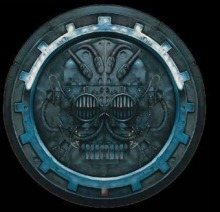
Advertisement

![]() by Ulls » Sun Jun 18, 2017 4:06 am
by Ulls » Sun Jun 18, 2017 4:06 am

![]() by Achidyemay » Sun Jun 18, 2017 6:43 pm
by Achidyemay » Sun Jun 18, 2017 6:43 pm

![]() by The Grim Reaper » Mon Jun 19, 2017 4:54 pm
by The Grim Reaper » Mon Jun 19, 2017 4:54 pm

![]() by Conwy-Shire » Mon Jun 19, 2017 6:56 pm
by Conwy-Shire » Mon Jun 19, 2017 6:56 pm

![]() by G-Tech Corporation » Mon Jun 19, 2017 10:01 pm
by G-Tech Corporation » Mon Jun 19, 2017 10:01 pm

![]() by Reatra » Tue Jun 20, 2017 6:55 pm
by Reatra » Tue Jun 20, 2017 6:55 pm

![]() by Oudland » Wed Jun 21, 2017 3:24 am
by Oudland » Wed Jun 21, 2017 3:24 am

![]() by Civilizations OP » Wed Jun 21, 2017 8:18 pm
by Civilizations OP » Wed Jun 21, 2017 8:18 pm

![]() by Oudland » Thu Jun 22, 2017 2:49 am
by Oudland » Thu Jun 22, 2017 2:49 am

![]() by Ulls » Fri Jun 23, 2017 2:45 am
by Ulls » Fri Jun 23, 2017 2:45 am

![]() by Achidyemay » Fri Jun 23, 2017 7:00 am
by Achidyemay » Fri Jun 23, 2017 7:00 am

![]() by The Grim Reaper » Mon Jun 26, 2017 2:21 am
by The Grim Reaper » Mon Jun 26, 2017 2:21 am

![]() by Conwy-Shire » Mon Jun 26, 2017 7:07 pm
by Conwy-Shire » Mon Jun 26, 2017 7:07 pm

![]() by Ulls » Tue Jun 27, 2017 5:30 am
by Ulls » Tue Jun 27, 2017 5:30 am

![]() by Oudland » Tue Jun 27, 2017 6:14 pm
by Oudland » Tue Jun 27, 2017 6:14 pm

![]() by G-Tech Corporation » Fri Jun 30, 2017 2:10 pm
by G-Tech Corporation » Fri Jun 30, 2017 2:10 pm

![]() by Ulls » Thu Jul 06, 2017 4:31 am
by Ulls » Thu Jul 06, 2017 4:31 am

![]() by G-Tech Corporation » Fri Jul 07, 2017 9:12 am
by G-Tech Corporation » Fri Jul 07, 2017 9:12 am

![]() by Oudland » Fri Jul 07, 2017 11:47 am
by Oudland » Fri Jul 07, 2017 11:47 am

![]() by Ulls » Sat Jul 08, 2017 5:59 am
by Ulls » Sat Jul 08, 2017 5:59 am

![]() by G-Tech Corporation » Sat Jul 08, 2017 2:53 pm
by G-Tech Corporation » Sat Jul 08, 2017 2:53 pm

![]() by Labstoska » Sun Jul 09, 2017 1:24 am
by Labstoska » Sun Jul 09, 2017 1:24 am

![]() by Holy Tedalonia » Sun Jul 09, 2017 5:02 pm
by Holy Tedalonia » Sun Jul 09, 2017 5:02 pm

![]() by Achidyemay » Sun Jul 09, 2017 7:45 pm
by Achidyemay » Sun Jul 09, 2017 7:45 pm

![]() by Ulls » Sun Jul 09, 2017 11:01 pm
by Ulls » Sun Jul 09, 2017 11:01 pm
Advertisement
Return to Portal to the Multiverse
Users browsing this forum: Melon Heads, The GAmeTopians
Advertisement